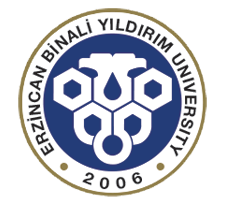Objective: The mode of delivery is important for the development of the immune system in newborns. We aimed to investigate whether the changes in the activity and numbers of immune system cells are related to their birth pattern.
Materials and Methods: In this study, peripheral blood leukocyte, monocyte, granulocyte, and lymphocyte counts as well as lymphocyte subpopulations were investigated in the umblical cord blood samples of 74 normal pregnancies, delivered either vaginally (n=34) or by elective cesarean section (n=40). A laser-based flow cytometer was used to analyze surface markers on the mononuclear cells. Statistical analysis was performed by using SPSS analysis package program (Microsoftware version 17.0). P≤0.05 was considered significant.
Results: We found that mean total leukocyte, lymphocyte, granulocyte, and monocyte counts were observed to be lower in the cesarean delivery group than in the normal delivery group. However, no statistically significant difference was found between two groups. There were higher percentage values of CD3+, CD4+, and CD8+, lower percentage and absolute values of CD16+, and percentage values of CD19+ in the cesarean delivery group. The percentage values of CD3+, CD4+, CD8+, and percentage and absolute values of CD16+ were significantly different between the two groups. However, there was no significant difference in CD19+ values.
Conclusion: With this study, we tried to show possible effects of delivery methods on the lymphocyte subgroups and immune system of the newborns. However, future studies with larger groups are needed to enlighten this issue.
Amaç: Çalışmamızda, doğum şeklinin lenfosit alt gruplarına etkisinin araştırılması hedeflenmektedir.
Gereç ve Yöntem: Bu prospektif çalısma; 37. haftadan büyük gebeliği olan, İstanbul Medeniyet Üniversitesi Göztepe E.A.H. Kadın Doğum Servisine başvuran 40’ı Sezaryen ve 34’ü Normal doğum yapan toplam 74 gebe analiz edildi. Gebelerin umblikal kord kanı örneklemesinde total lökosit, monosit, granulosit, lenfosit sayıları ve lenfosit subpopulasyonları ile oranları araştırılmıştır. Lazer bazlı flow sitometri, mononükleer hücrelerin yüzey belirteçlerinin analizi için kullanılmıştır. Çalışmada SPSS 17.0 paket programından faydalanılmış olup; p≤0,05 anlamlı olarak kabul edilmiştir.
Bulgular: Bu çalışmada sezaryen ile doğum yapanlarda total lökosit, lenfosit, granülosit ve monosit sayıları daha düşük gözlemlenmesine rağmen, her iki grup arasında anlamlı istatistiksel bir fark izlenmemiştir. Lenfosit subpopülasyonunda sezaryen ile doğum yapanlarda, CD3+, CD4+, CD8+ yüzde değerlerinin daha yüksek, CD16+ yüzde ve mutlak değerlerinin ve CD19+ yüzde değerlerin daha düşük olduğu görülmüştür. CD3+, CD4+, CD8+ yüzde değerlerinin ve CD16+ yüzde ve mutlak değerlerinde her iki grup arasında anlamlı fark oluşurken; CD19+ değerlerinde anlamlı fark görülmemiştir.
Sonuç: Bu çalışma ile doğum şeklinin lenfosit alt gruplarına ve yenidoğanın immun sistemi üzerine olası etkilerini göstermeye çalıştık. Bu konudaki detaylı araştırmalar için, hasta sayısının arttırılması öngörülmektedir.
Cite this article as: Kıyan T, Fındık Kıyan H, Katipoğlu H, Büyükkayhan D, İşman FK. The Effect of the Mode of Delivery on Neonatal Immunity. Arch Basic Clin Res 2019; 1(3): 95-9.


.png)



%20(1).png)